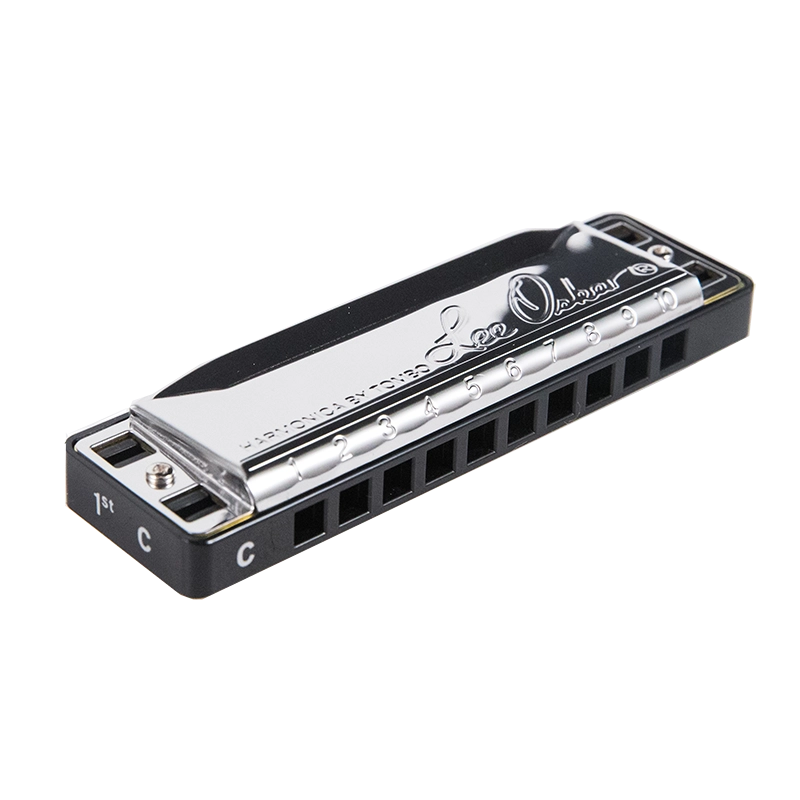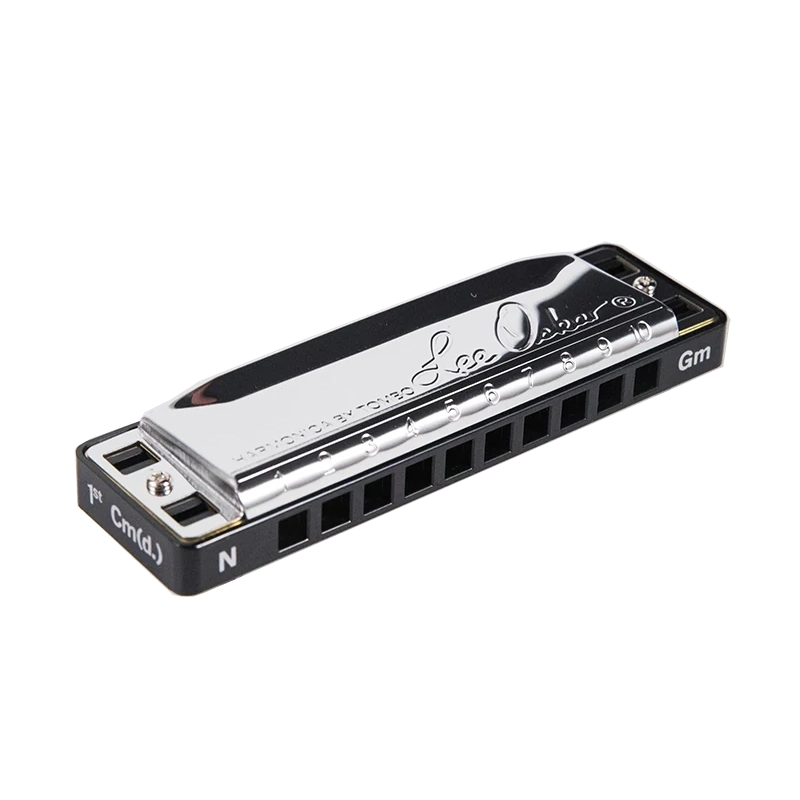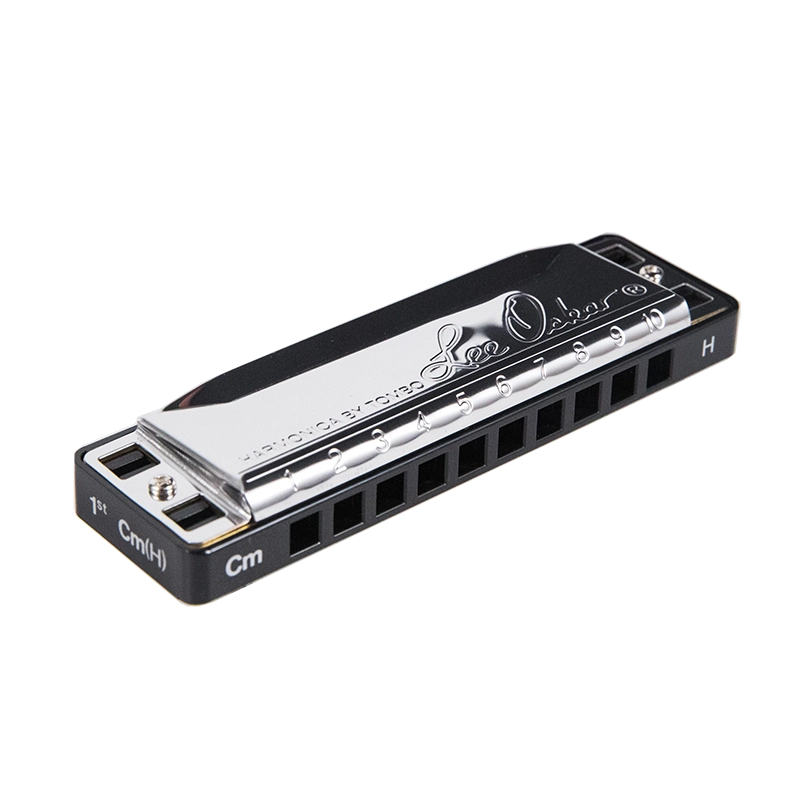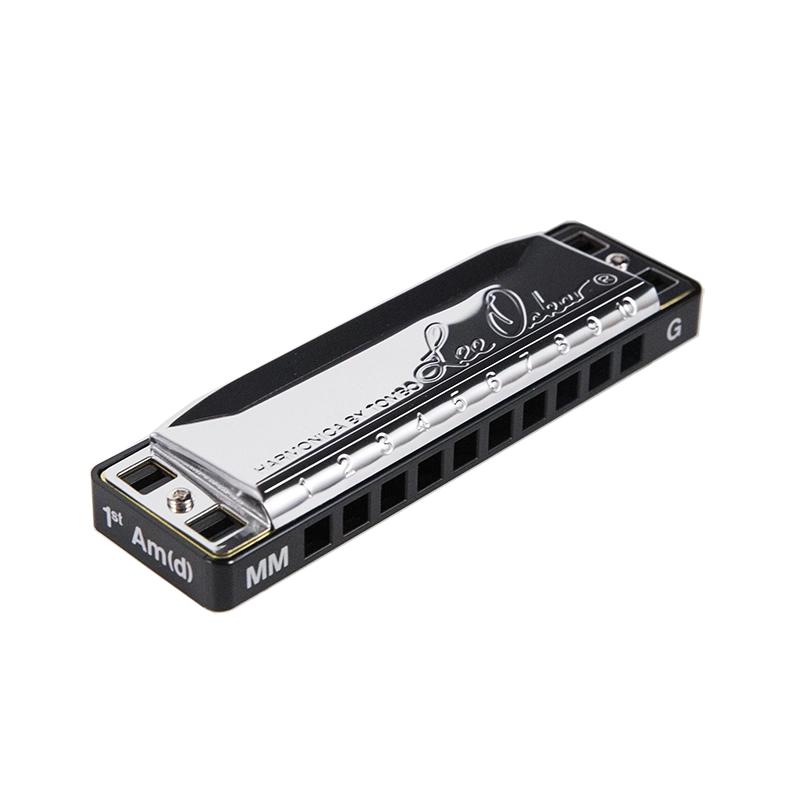When choosing a Lee Oskar harmonica set, beginners should usually start with a C Major Diatonic harmonica, as it is the easiest key to learn and fits most beginner songs. Different tunings—including Natural Minor, Menor armónicoy Melody Maker—are suited for specific styles like blues, reggae, Latin, and folk. Understanding key positions (1st and 2nd) helps you play in the right key for any song. Lee Oskar harmonicas are durable and easy to maintain, and their replaceable reed plates make them ideal for students, bands, and music schools.
Resumen
Choosing the right harmonica can be confusing with so many keys and tunings available. This guide walks you through the Lee Oskar harmonica set, explaining the differences between Major Diatonic, Natural Minor, Harmonic Minor, and Melody Maker tunings. You’ll also learn about playing positions, key selection, and which harmonicas suit different music styles. By the end, you’ll know which Armónica Lee Oskar to start with, how to maintain it, and why it’s a reliable choice for beginners, schools, and performing bands.
Índice
- Introduction to Lee Oskar Harmonicas
- How to Choose a Lee Oskar Harmonica: Understanding Keys and Playing Positions
- Detailed Explanation of All Tunings and Keys
- Lee Oskar Harmonica vs. Other Brands
- Which Music Styles Suit Lee Oskar Harmonicas?
- Recommended Classic Lee Oskar Harmonica Performers
- Maintenance and Repair Guide
- PREGUNTAS FRECUENTES
- Conclusión
- Looking to stock up on authentic Lee Oskar harmonicas?
- Referencias
Introduction to Lee Oskar Harmonicas
Armónicas Lee Oskar have been a trusted name among harmonica players for decades. Founded by Lee Oskar, the world-renowned harmonica player from the band War, this brand is known for its consistent tone, airtight design, and modular construction.
Unlike traditional harmonicas, Lee Oskar’s models use replaceable reed plates y durable plastic combs, making them long-lasting and easy to maintain. Each model is designed to serve a different musical purpose—from blues and rock a Latin and folk.
If you’re planning to purchase a Lee Oskar harmonica set, understanding the difference between tunings and keys is essential to make the most of your investment.
How to Choose a Lee Oskar Harmonica: Understanding Keys and Playing Positions
Every harmonica key produces a different range of notes. Choosing the right key depends on the style of music you play and the key of the song you’re accompanying.
1. Playing Positions: 1st and 2nd Positions
- 1st Position (Straight Harp):
You play in the key of the harmonica itself.
Example: A C harmonica plays songs in the key of C major.
Lo mejor para: Melody playing and folk tunes. - 2nd Position (Cross Harp):
You play in a different key, usually a perfect fourth above.
Example: A C harmonica plays in G major when played cross-harp.
Lo mejor para: Blues, rock, and country.
2. Which Key to Start With?
Beginners are usually advised to start with a C Major Diatonic harmonica, such as the Lee Oskar Armónica Diatónica Mayor.
- It matches many beginner songbooks and tutorials.
- Notes are easier to memorize.
- It’s ideal for learning bending and breath control.
3. Understanding Key Relationships
| Harmonica Key | 2nd Position (Cross Harp Key) | Suitable Music Styles |
|---|---|---|
| C | G | Folk, Country |
| A | E | Blues, Rock |
| D | A | Jazz, Funk |
| G | D | Pop, Latin |
| F | C | Ballads, Soul |
This chart helps players quickly match harmonica keys to song keys in live performances or studio sessions.
Detailed Explanation of All Tunings and Keys
Lee Oskar harmonicas are famous for their modular tuning system, which allows players to switch reed plates easily. Let’s look at each tuning and its purpose.
1. Major Diatonic—The Standard Choice
En Lee Oskar Armónica Diatónica Mayor is the classic model. It’s perfect for blues, rock, country, and pop.
- Available Keys: A, Bb, B, C, D, E, F, G, and others.
- Ideal para: Beginners, blues players, and general music education.
- Why Choose It: Clear tone, flexible for multiple genres, and easy to bend notes.

2. Natural Minor—For Deep Blues and Soulful Music
En Armónica Lee Oskar Natural Minor is designed for darker, emotional tones.
- Best For: Reggae, R&B, minor blues.
- Sound Character: Warm, moody, expressive.
- Why It’s Unique: You can play natural minor scales easily without complex bending.

3. Harmonic Minor—For Eastern or Latin Flavors
En Armónica menor Lee Oskar produces a distinctive Middle Eastern and Gypsy tone.
- Best For: Tango, Eastern European, and Latin music.
- Sound Character: Exotic and vibrant.
- Recommended Keys: A minor, D minor, E minor.

4. Melody Maker—For Major Scales with Smooth Transitions
En Armónica Lee Oskar Melody Maker allows you to play melodies in major keys without awkward note gaps.
- Best For: Reggae, pop, ska, and gospel.
- Feature: Notes are rearranged for easy playing in the 2nd position.
- Ideal Users: Bands and songwriters who play melodies in upbeat styles.

Lee Oskar Harmonica vs. Other Brands
Lee Oskar competes with legendary brands like Hohner y Suzuki. Let’s compare them:
| Característica | Lee Oskar | Hohner | Suzuki |
|---|---|---|---|
| Comb Material | Plastic (durable, washable) | Wood or Plastic | Plastic/Resin |
| Tono | Bright, clean, consistent | Warm, vintage | Smooth, precise |
| Maintenance | Replaceable reed plates | Limited options | Some replaceable parts |
| Price Range | Affordable and modular | Varies widely | Slightly higher |
| Ideal para | Beginners to pros | Traditional players | Precision-focused players |
Conclusion:
Lee Oskar harmonicas stand out for durability, easy maintenance, and consistent tone, making them a smart choice for distributors and schools that require long-lasting instruments.
Which Music Styles Suit Lee Oskar Harmonicas?
Lee Oskar harmonicas are versatile and cover nearly every genre.
1. Blues and Rock
- Best tuning: Major Diatonic
- Typical keys: A, C, D, G
- Common artists: Blues legends and street performers alike.
- Tone: Bright, gritty, and expressive for bending notes.
2. Reggae and Ska
- Best tuning: Melody Maker
- Example key: G or A
- Smooth transitions make it perfect for rhythm-based grooves.
3. Latin and Jazz
- Best tuning: Menor armónico
- Adds a dramatic, exotic flavor.
- Ideal for world fusion and tango music.
4. Oriental and Ethnic Styles
- Best tuning: Natural Minor or Harmonic Minor
- Produces modal scales and expressive microtones.
Recommended Classic Lee Oskar Harmonica Performers
Lee Oskar himself is a legendary harmonica player, but many other musicians use his brand for its reliability and tone.
- Lee Oskar (War)—Known for “Low Rider” and “Cisco Kid.”
- Howard Levy—Known for jazz improvisation on diatonic harmonicas.
- John Popper (Blues Traveler) – Uses Lee Oskar harmonicas for live performances.
- Music Schools and Bands Worldwide – Choose Lee Oskar sets for teaching and performance consistency.
Maintenance and Repair Guide
Lee Oskar harmonicas are built for easy repair. Here’s how to keep them in perfect condition:
1. Cleaning
- Use lukewarm water to rinse the harmonica after playing.
- Avoid hot water to prevent damage to the reed plates.
- Use a soft brush for gentle cleaning.
2. Replacing Reed Plates
One reason players love Lee Oskar is the replaceable reed plates.
Instead of buying a new harmonica, replace the reed section for a fraction of the cost.
- Helps maintain a consistent tone.
- Extends the instrument’s lifespan.
3. Storage
- Keep your harmonica dry and in a case.
- Avoid direct sunlight or high humidity.
- Periodically check screws and plates for tightness.
PREGUNTAS FRECUENTES
1. Why choose a plastic comb instead of a wooden comb?
Plastic combs, like those in Lee Oskar harmonicas, are moisture-resistant and won’t swell. They provide stable tuning and consistent performance, especially for frequent players.
2. Why change the reed board?
Reed boards tend to wear out over time, which can affect sound quality. Lee Oskar harmonicas have replaceable reed plates, which saves money and extends the harmonica’s life.
3. Which key is suitable for beginners?
En C Major Diatonic is ideal for beginners. It’s easy to learn and matches most harmonica tutorials and songbooks.
4. How do I choose between Major Diatonic and Melody Maker?
- Choose Major Diatonic if you want a standard blues or folk tone.
- Choose Melody Maker if you focus on melodic and reggae-style music.
5. Are Lee Oskar harmonicas good for schools and distributors?
Yes. Their durability, replaceable parts, and affordability make them ideal for bulk purchases and music education programs.
Conclusión
Elegir bien Lee Oskar harmonica set depends on your musical needs and experience level.
For beginners, start with a C Major Diatonic. For more advanced players, explore the Natural Minor, Harmonic Minoro Melody Maker tunings to expand your sound palette.
Lee Oskar harmonicas are reliable, easy to maintain, and suitable for every music style. Whether you’re a music school, bando instrument distributor, investing in Lee Oskar harmonica sets ensures consistent performance and long-term value.
Looking to stock up on authentic Lee Oskar harmonicas?
👉 Explore the full collection of Lee Oskar harmonica sets at BeatBulk—your trusted wholesale supplier for quality musical instruments.
Referencias
- Lee Oskar Harmonicas Official Site – Technical Tuning Guide.
- “How to Play in 1st and 2nd Position” – Harmonica Academy Learning Center.
- BeatBulk Musical Instruments Blog – Harmonica Maintenance and Setup Tips.
- War Band Discography – Classic Performances Featuring Lee Oskar.
- Music Educators Journal – Harmonicas in Classroom Teaching.







